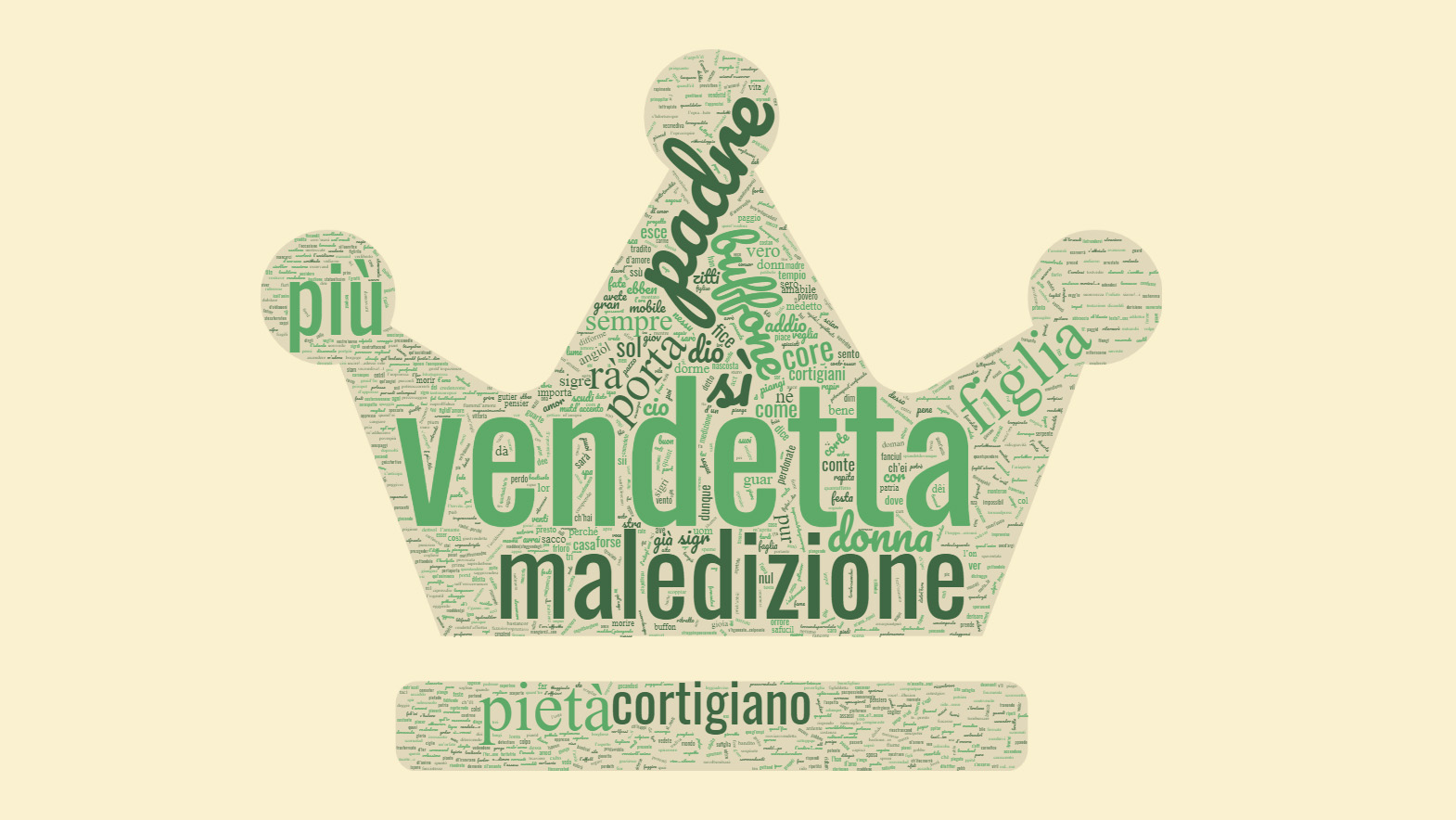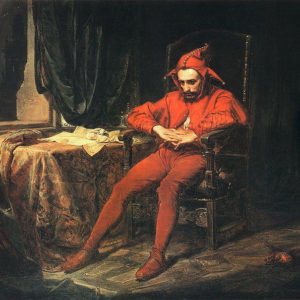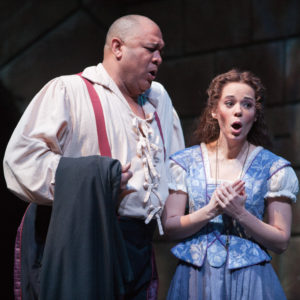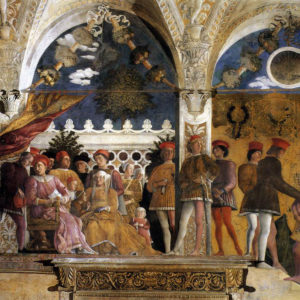Top Ten Italian Words in Rigoletto

By: Angelica DiIorio
Rigoletto is one of composer Giuseppe Verdi’s masterpieces. He was Italian, if you couldn’t tell by the name. Rigoletto is performed in Italian and set in Mantua, Italy—a city between Milan and Venice. While Italian is a common language for operas, it is not exactly one of the most common languages in the United States anymore.
Even if you do not know any Italian words, you can still understand what is going on in Rigoletto. At every performance, you will find subtitles at your seat translating the Italian singing into English or Spanish. You can also check out Rigoletto 101: Characters and Plot to understand what is going on in the story.
Starting at just $39, get your tickets to see Rigoletto >>>>
While we can’t teach you the entire Italian language, we can highlight a few words to help you feel a little closer to the art. In this post, you will find the top ten most relevant Italian words in Rigoletto to sweeten the sound of “la lingua Italiana” when you hear it live.
#1 Italian Word in Rigoletto: Buffone
(n.) jester

Source: The National Museum Warsaw
Rigoletto is the jester for the court of Mantua. He makes fun of the people in the court, but suffers great consequences when he ridicules the wrong man and ends up cursed. Rigoletto was just doing his job!
#2 Italian Word in Rigoletto: Cortigiano
(n.) court
Court life is the focus of Rigoletto. There is a duke, a jester, a countess, an innocent daughter, and an assassin. And you thought cliques were just for high schools.
#3 Italian Word in Rigoletto: Donna
(n.) a woman
One of the most famous arias in Rigoletto is “La donna è mobile” (The woman is fickle). For someone who claims women are the fickle ones, The Duke is very mercurial in his interests. He quickly jumps from courtship to courtship, starting with Countess Ceprano, then Rigoletto’s daughter Gilda, then, finally, Maddalena.
#4 Italian Word in Rigoletto: Figlia
(n.) daughter

Photo: Opera Colorado/Matthew Staver
Have you heard of a helicopter parent? Someone who is a little too overprotective of their child. Rigoletto is the original helicopter parent. He keeps his daughter Gilda sheltered to the point that her naïveté causes her more danger.
#5 Italian Word in Rigoletto: Maledizione
(n.) a curse
Rigoletto is cursed by an older nobleman, Monterone, for ridiculing him at the beginning of the opera. This curse only aggravates Rigoletto’s paranoia and affirms his jaded nature. He spends most of the opera trying to avoid his curse, only to walk straight into it. The theme of the curse was so important to Verdi that he almost named the opera La Maledizione.
#6 Italian Word in Rigoletto: Padre
(n.) father
The fatherly protection Rigoletto tries to provide for his daughter Gilda is at the center of this opera, which is why both “father” and “daughter” are among the most common words. The bond between family members is important, but in this story, it becomes obsessive.
#7 Italian Word in Rigoletto: Pietà
(n.) pity, compassion, or sympathy
At each tragic turn of events, you can’t help but pity these characters. Everything goes wrong for Rigoletto; in an effort to protect his daughter, he leads her right into trouble. When Rigoletto tries to have The Duke killed, Gilda sacrifices herself instead. Despite all the twists and turns, Gilda’s dying wish is for her father to forgive her and show The Duke pity.
#8 Italian Word in Rigoletto: Più
(adv.) more

Source: Web Gallery of Art
Everyone in this opera wants more. Rigoletto wants more protection for his daughter. Consequently, Gila wants more freedom. The Duke wants more entertainment, and his court is pleased to have more and more drama!
#9 Italian Word in Rigoletto: Porta
(n.) door
Both entering and escaping, there are many physical and metaphorical doors in Rigoletto. Poor Gilda was sheltered her whole life behind closed doors. The minute she knocks at a new door, she meets her untimely death and is stabbed.
#10 Italian Word in Rigoletto: Vendetta
(n.) revenge or vendetta
This Italian word is a cognate, so it means exactly what you think it does. Rigoletto seeks revenge against The Duke for persuing his daughter, and the old noble Monterone shares the same goal. With all these vendettas, the assassin Sparafucile is well employed.
—
These words touch on a lot of themes in Rigoletto, focusing especially on family and revenge. See for yourself how far these characters will go for their families and their own wants in Rigoletto.


